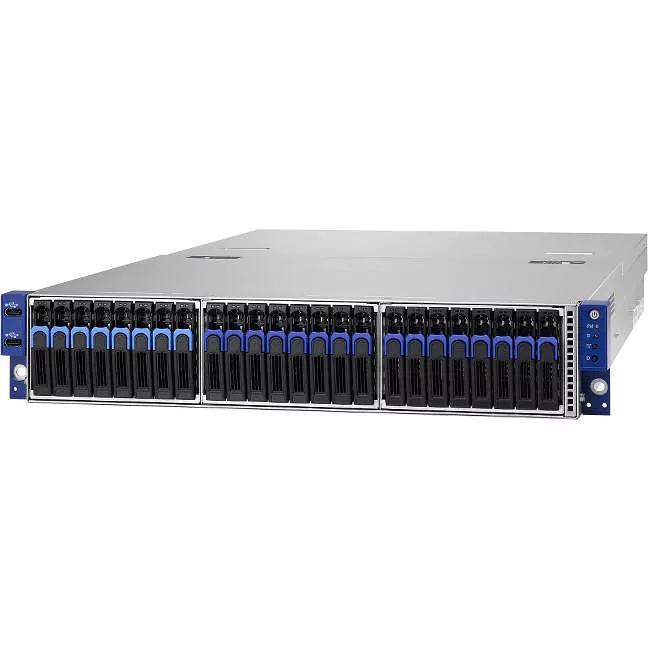MiTAC B8026T70AV16E8HR Transport SX TN70A-B8026 2U Rack Barebone - AST2500 - Socket SP3
SabrePC B2B Account Services
Save instantly and shop with assurance knowing that you have a dedicated account team a phone call or email away to help answer any of your questions with a B2B account.
- Business-Only Pricing
- Personalized Quotes
- Fast Delivery
- Products and Support

$1,887.10
MiTAC B8026T70AV16E8HR Transport SX TN70A-B8026 2U Rack Barebone - AST2500 - Socket SP3
TYAN TN70A-B8026 Hybrid Storage Server B8026T70AV16E8HR
Traditional server architectures have tied high amounts of PCIe connectivity and memory capacity to dual socket designs. The AMD EPYC platform frees server designers from this limitation, allowing us to design single-socket servers with features only seen before in dual socket platforms. The Tyan Transport SX (TN70A-B8026) allows datacenter architects to select the right sized CPU without sacrificing memory capacity, memory performance, or PCIe connectivity.
Tyan's TN70A-B8026 offers outstanding computational power for a single-socket server, with support for 8, 16, 24, or 32-Core processors with up to 64 threads. The memory capacity of the server is also incredibly high for a single socket server, able to support up to 2TB of RAM with every processor in the AMD EPYC SKU stack.
The platform is a 2U server barebones based on the outstanding Tomcat SX (s8026) single-socket AMD EPYC motherboard. The B8026T70AV16E8HR model is a hybrid storage server with support for (8) 2.5 NVMe and (16) 2.5 SATA drive bays. The server supports up to 6 PCIe slots in the back, with a pair of x24 riser cards that can both support either x16/x0/x8 or x8/x8/x8 configurations. An OCP v2.0 LAN Mezzanine provides high speed network capability, with support for either x8 or x16 network cards and speeds up to 100Gigabit Ethernet. A x16 LAN Mezzanine borrows 8 PCIe lanes from a riser slot through a MUX.
The TN70A-B8026 is a versatile design and has an alternative all-NVMe model named the B8026T70AE24HR with support for 24 NVMe Hot-Swap 2.5 bays. More details about the B8026T70AE24HR can be found here.
Key Features
AMD EPYC 14nm CPU
The AMD EPYC processor offers the highest possible performance from a single CPU socket, including:
- 8, 16, 24, or 32 core processors with 16, 32, 48, or 64 threads
- Support for up to 2TB total RAM per socket on all CPU models
- Support for memory speeds up to DDR4-2667
- 128 PCIe lanes
Dual Socket Feature Set
Traditionally, the only way to deploy a large number of PCIe devices or deploy large quantities of memory has been to select a dual-socket motherboard. This has resulted in datacenters full of underutilized and expensive dual-socket servers which had been purchased for memory footprint and I/O capabilities that had not previously been available in single-socket servers. Tyan has targeted these applications with the AMD EPYC platform by supporting up to 124 PCIe lanes and 8 memory channels in a single-socket platform. Significant savings can be had both in CPU cost and power consumption by migrating workloads to a single socket AMD EPYC platform and increasing resource utilization.
8 Hot-Swap 2.5 NVMe Drive Bays
NVMe technology offers breakthrough performance for SSDs by attaching storage devices directly to the PCIe bus, freeing them from the SATA protocol that was originally designed for slower rotational media. This technology significantly reduces storage latency and increases transfer speeds.

